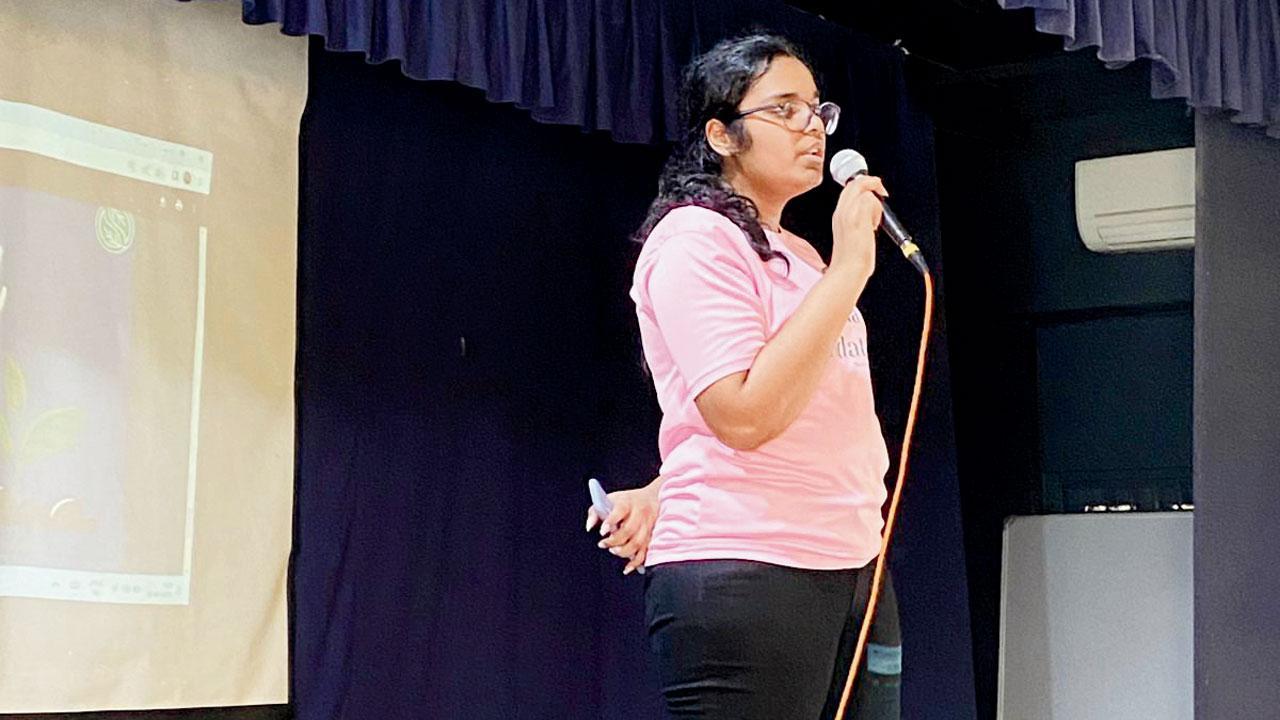Emphasising the importance of hands-on experience, Siya calls for teaching green energy and encourages responsible waste management practices

Litisha Bagadia was awarded The Princess Diana Award on June 30
Litisha Bagadia, a 17-year-old city-based climate activist, has been awarded The Princess Diana Award for her exceptional work in climate action and animal care. In an online ceremony on June 30, she was recognised for pioneering the Ganpati flower waste recycling effort in Mumbai during the Ganesh Chaturthi festival, benefiting underprivileged and tribal communities.
ADVERTISEMENT
Siya manages to balance her college and work life while dedicating more time to her social cause than her studies. She explained, “At every project, I meet new people and understand new behaviours, which are more important than mainstream education in schools and colleges. Children should be taught about green energy.”
Speaking with mid-day, Litisha expressed her concerns about electric vehicles (EVs) “By using EVs, you are not protecting the environment, but actually harming it. The manner in which minerals like cobalt and lithium required to make them are mined makes the toxic chemicals enter the soil. There should be regulations on the way these things are marketed,” she said, adding, “We collected 500 kg of e-waste like laptops, chargers, etc., and gave it to The Recycling Company who extract the metal and reuse it.”
She further highlighted the issue of cobalt mining, “It is reported that 3/5th of the world’s cobalt comes from the Congo, and more and more villages get uprooted as they find new cobalt mines under them. The conditions in which the miners live causes permanent health implications.”
Regarding the waste generated during the Ganpati Visarjan festival, she highlighted, “The conversation around the waste as a result of Ganpati Visarjan is limited to the material of the idol, but the flower waste can also remove the obstacle of unemployment. We collected 300 kg of flowers during the 11 days and gave it to a startup called Adiv and Mobi trash which gives it to people from tribal areas and slums to make incense sticks and dyes.”
Regarding plastic waste, she added, “They give their plastic collected at beach cleanliness drives to the recycling company and GoShoonya who turn plastic into furniture and other useful products.” She mentioned the collaboration with Laxmi Nagar and MP Shah School, saying, “Ayika Foundation has tied up with Laxmi Nagar and MP Shah School and have sessions on environment conservations as a part of their curriculum for Stds III to VI. We give them hands-on exercises like making bowls with reusable material so at a young age it plants a seed of entrepreneurship to have their own line of products from a young age.”
When discussing why they avoid using alarming statistics of climate change, Bagadia pointed out, “I’ve noticed that this approach gives rise to eco-anxiety, which is a prevalent mental health problem in today’s kids. Witnessing the cutting of a tree can bring about mood changes.” “People think that by segregating their waste into dry and wet at home, they are making a big change, but that only ends up in the landfills. Instead, contact Mumbai-based startups that collect waste, recycle and reuse them,” she suggested.
500 kg
Amount of e-waste Ayika Foundation collected
 Subscribe today by clicking the link and stay updated with the latest news!" Click here!
Subscribe today by clicking the link and stay updated with the latest news!" Click here!







